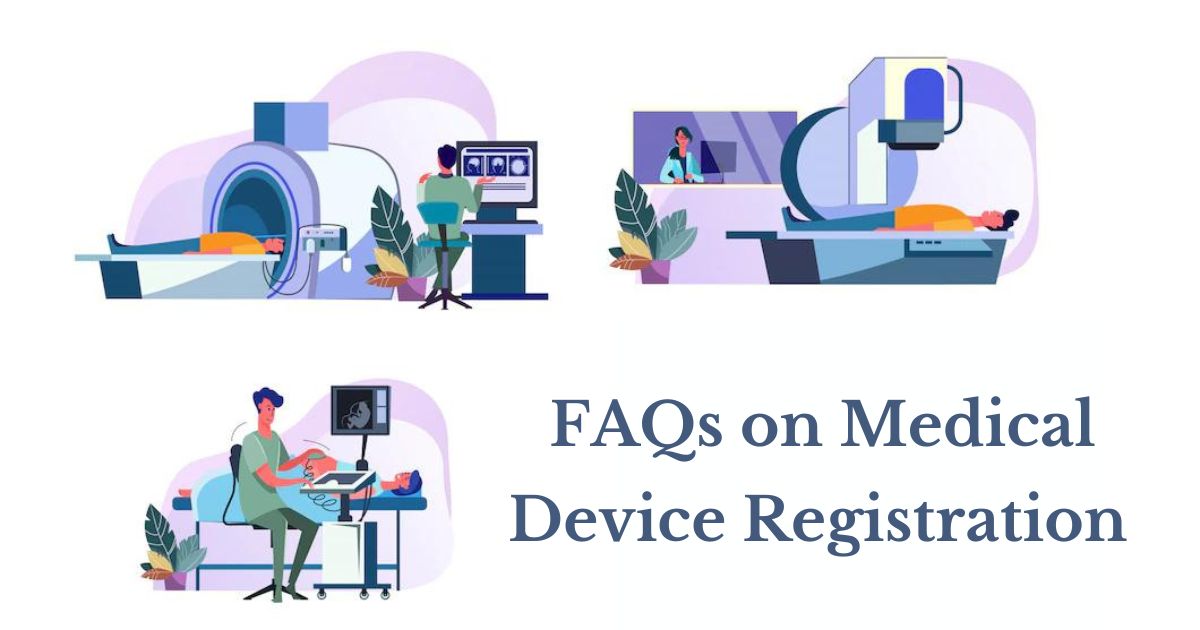FAQs on Medical Device Registration in India

-
What is Voluntary Registration of Medical Device and When It Is Required?
The Indian Government changed the law in 2020 so that producers and importers of all medical equipment, excluding the 37 categories of medical devices, must voluntarily register by October 1, 2021. Manufacturers and importers who are unable to register before October 1, 2021 would have to either stop selling the relevant medical devices until they do so, or run the risk of incurring fines for breaking DCA and MDR regulations.
Class A and B medical device registration will be required starting on October 1, 2022. Class A and B device registration is initially optional for 18 months before becoming mandatory for 12 months. Class C and D medical device voluntary registration will be valid through September 30, 2023. The requirement for registration will take effect on October 1, 2023. Manufacturers or importers are required to register Class C and D devices for 24 months after 18 months of voluntary registration of medical device in India.
2. Does Medical Devices Require Registration in India and Why?
Only 40 to 50 medical devices in India presently need to be registered, and the Manufacturer is required to obtain a NOC from the DCGI for all other devices. The main goals of regulation are to prevent access to harmful items and to provide patients with high-quality, safe, and effective medical equipment. Regulation ensures the benefit to public health as well as the security of patients, medical personnel, and the general public when it is properly applied.
3. What Is The Process For Application For Registration Of Medical Devices In CDSCO?
Step 1: A Form 27 application must be submitted to the SLA (State Licensing Authority) along with the required fee in the amount and format specified in the proposed Rules, as well as a copy to the DCG Office.
Step 2: From the moment these rules were published, applicants would have 60 days to submit their applications for manufacturing.
Step 3: No manufacture will be allowed moving forward without the competent authority's approval in accordance with the standards prescribed.
Step 4: The applicant must submit necessary information to the licensing authorities with their application.
Step 5: The expert committees will thoroughly analyze any medical devices that are being examined and don't yet have any benchmark certification.
Step 6: The committee submits its recommendation for the acceptability of the gadget after conducting its evaluation.
Step 7: The SLA would submit the license to CLAA for approval following the joint verification and inspection.
Step 8: Following proper CLAA clearance, the license will be given in accordance with Form 28 of the aforementioned guidelines.
4. How Are Medical Devices Classified In India?
The MDR 2017 Guidance serves as the foundation for the classification system used in India, which is based on factors such as intended use, risk level, distribution mode, and level of bodily intrusion. From lowest to highest risk, products are categorized into one of the following categories:
A, B, C, and D are the different classes.
5. How Do I Register A Non-Notified Medical Device In India?
According to the provisions, a person must submit an application through a Sugam online portal in order to get the registration number of a medical device that has not been notified.
Steps that Manufacturers and Importers Must Take to Register Non-Notified Medical Devices
- The applicant must click the portal's registration link to register.
- The applicant must register using a working email address and mobile number.
- To register on the platform, candidates must upload the following documents:
- Id Proof Information
- Details of the corporate address proof (Certificate of Incorporation)
- A copy of the wholesale licenses and the manufacturing licenses (If not then upload the justification for the same)
- The applicant must use the OTP (4 digits) obtained on their mobile device to confirm their registration before they can log in.
- Candidates must upload the appropriate paperwork in accordance with the Registration Number checklist.
Also get detail about CDSCO cosmetic import registration
